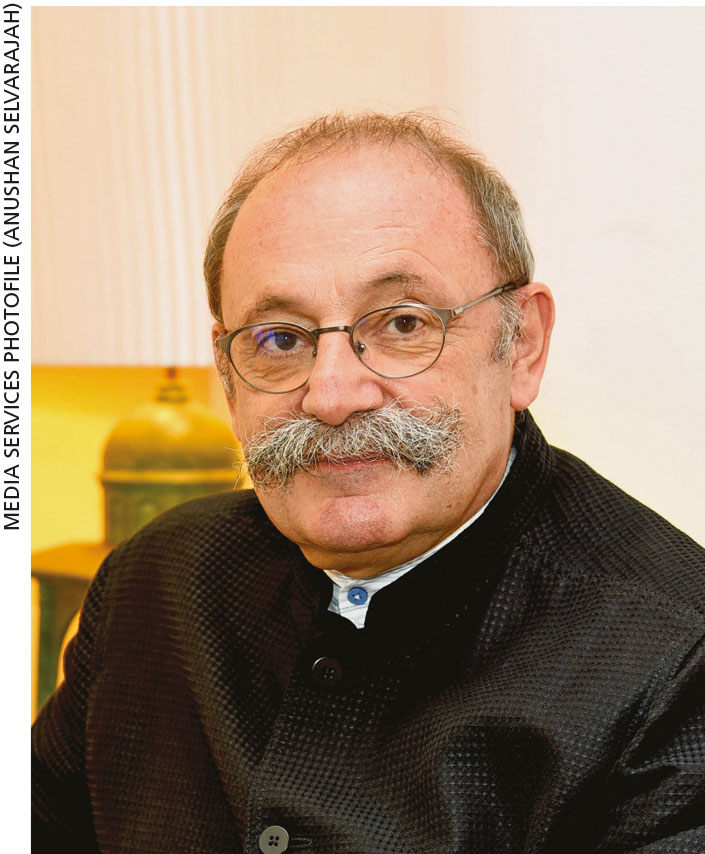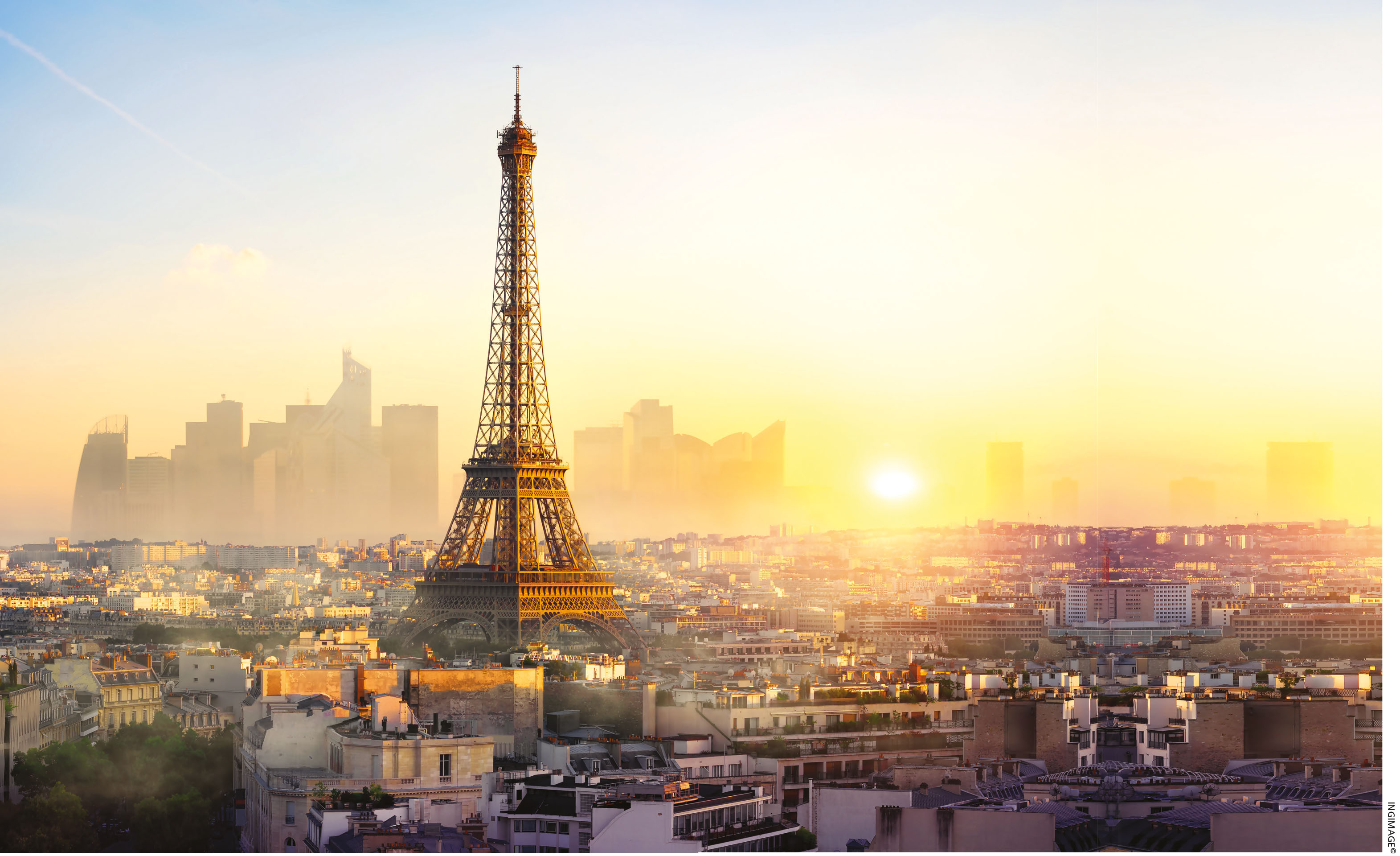DIPLOMATIC MISSION
Compiled by Savithri Rodrigo
ON FAIR WINDS FOR FRANCE
Eric Lavertu sees France at the helm of steering global challenges
The world watched in horror as an iconic piece of global history with its roots in the 12th century succumbed to flames in April last year. So majestic was its French Gothic exterior and magnificent were its Romanesque interiors that for French Ambassador Eric Lavertu, watching it crumble from his faraway residence in Sri Lanka was heartrending.
Lavertu remarks: “The French have been through much as has the Notre-Dame. Now our focus is to rebuild, solidify the stone structures, and make important decisions on the final look and feel of this symbol of France.” And he reveals that “President Emmanuel Macron is working on a plan of five years.”
Lavertu explains that Macron aims to be the bridge between nations, a harbinger of peace, warrior against climate change and advocate of improving the global economy.
As the ambassador points out, “the world is facing severe challenges including climate change, terrorism and heralding an inclusive global economy. At present, not every country is included in the global economy – that is the absolute challenge of development.”
“We have an obligation not only to ourselves but also our allies to fight terrorism. And we must reduce our high rate of unemployment, and continue the fight against climate change,” Lavertu says, outlining the challenges facing France.
He notes that a majority of France’s electricity is produced by nuclear plants, adding: “There are no greenhouse gas emissions and our energy mix also uses hydro. We’re developing wind energy and more solar energy, all of which is to fight climate change.”
Given France’s large trade volumes with the UK, Lavertu realises that Brexit would bring about stark realities. “For France, taxation, import and export control systems, accommodating and finding a new status for British citizens in France, and changes to the administrative process are areas that will require a focus,” he declares.
Turning to Sri Lanka’s economic landscape from an export angle, he anticipates new agreements being inked, and the UK and EU being major importers of Sri Lankan goods.
No sooner had Ceylon gained independence in 1948 than diplomatic relations were established with France. So the French-Sri Lankan connection is over 70 years old – and it’s active, especially in the development sphere.
France’s dynamic presence in rebuilding infrastructure in war-torn areas and following the tsunami gave the island a fillip with the establishment of the Agence Française de Développement (AFD), which works with a mandate of promoting green and inclusive growth in water and sanitation, energy and urban development.
According to Lavertu: “AFD is among the top four donors to Sri Lanka and in 2019 alone, it committed a total of EUR 1 billion since 2004 for development projects. At present, two large French companies are working on water and sanitation projects; one providing direct access to water for nearly 500,000 people using the Kelani River and another in Matale.”
Urban development is high on France’s development agenda with transportation taking precedence.
In collaboration with the French Treasury, AFD is studying Sri Lanka’s railways as well as light rail transit prospects, buses and traffic. Meanwhile, a French company is considering cable cars for the island’s busy cities. Water irrigation and treatment projects are under preparation in Batticaloa and Jaffna too.
Anuradhapura will have an interpretation centre for tourists to gain a better understanding of the wealth of history secreted in the ancient kingdom city. A pilot venture entailing six dairy projects with an investment of EUR 14 million has been mooted, for the safe collection and distribution of milk to schools in Polonnaruwa and Puttalam.
French tourists to Sri Lanka number over 100,000, making it one of the top five tourism source markets. Lavertu observes that business opportunities in the tourism industry are expansive: “Some high end French companies in the hospitality sector are present here because the level of tourism in Sri Lanka is the most advanced in South Asia. There are smaller businesses operating – from travel agencies to accommodation, and services including guiding and interpreting.”
He urges a sharper focus on developing human resources to work in innovation industries including apparel and textiles, and ecotourism where Sri Lanka’s natural resources – wildlife, forests and waterways – will be preserved and used to add value to the industry.
Lavertu presented his credentials as ambassador in October 2018; but prior to that, he had visited Sri Lanka in 1986. While Colombo is an almost unrecognisable city today, Kandy was an extremely quiet locality even back then “It’s not the case now, unfortunately; but the friendly and smiling people make up for all the changes,” he affirms.
The French diplomat discerns another less evident element: “When I see children going to school in pristine white uniforms, what strikes me is the value that Sri Lankans place on education. The fact that children are immaculately dressed by their parents illustrates the value and aspirations for their children.”
And he sums up: “Even in the most disadvantaged areas of Sri Lanka, children will never miss a day of school.”







